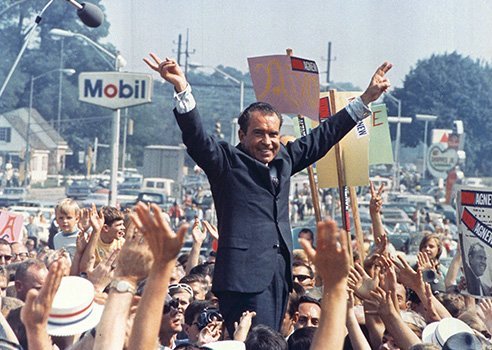Word count: 232 words
Reading time: Less than 1 minute
Increase your vocabulary and you’ll make your writing much more precise. That’s why I provide a word of the week. Today’s word: lèse-majesté .
I was in grade 6 when Richard Nixon was elected to office. I was too young for him to have much of an impact on me. But by the time of the Watergate scandal, I was old enough to be reading newspapers and watching the news on TV. I was riveted by the drama.
For this reason, I read the story Wag the Dog, by Thomas Mallon, in the Feb. 4/13 New Yorker with particular interest. And it surprised me by teaching me a word I hadn’t before seen:
Eisenhower didn’t like the hearty lèse-majesté with which Nixon grabbed and raised his patron’s arm for the photographers on the Convention rostrum.
While I can read some simple French and could guess at the meaning of the word from context, I wasn’t familiar with this term and was curious to learn more.
Lèse-majesté means an “offense against sovereign authority” and dates back to the 1530s. It’s from French, of course (the accents are a clue!), but it originated in Latin. Laesa majestos means “violated majesty,” and comes from laedere “to hurt, injure, damage, offend, insult.”
Bottom line? Eisenhower didn’t appreciate having his arm grabbed by an upstart like Dick Nixon.


